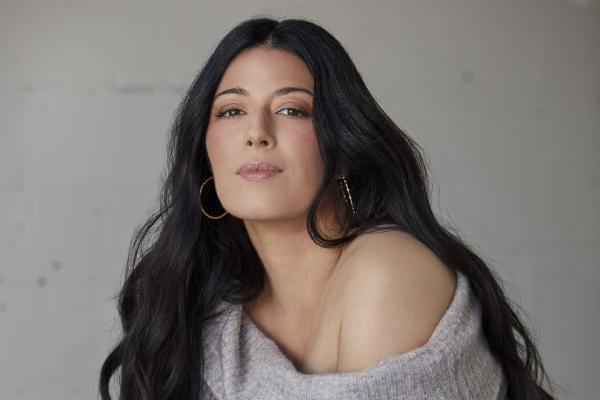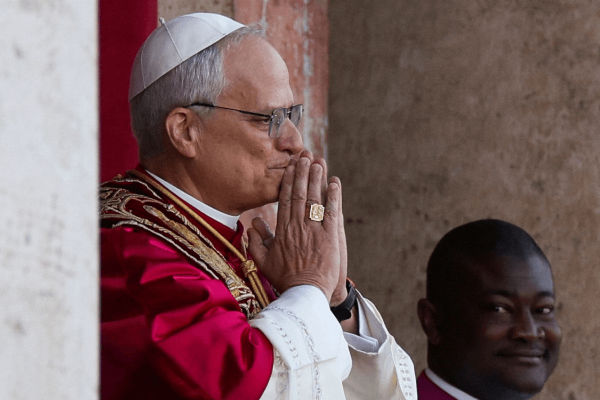Want to get weekly reading recommendations from Sojourners editors? Sign up for our newsletter here.
Asking whether God exists is part of what it means to be human. “Who created us? Why did they create us? Do they care about us? If they care about us, why do they let us continue to destroy each other?”
I think we usually ask these questions in a penitential key: “Where was God during this tragedy?” Being a human is difficult — so difficult that it is not only hard to imagine someone created us, but also that there exists anything outside of the mess we’ve created. We often collapse in on each other — whether by accident or on purpose.
Theologian David Leong, writing about the Champlain Towers South collapse, explained how the physical collapse of the building was preceded by the collapse of the intricate social systems that are foundational for any sort of human flourishing. Where was God? Our society doesn't have the stomach to examine the social systems that produce racism and the myth that marginalized people suffer redemptively. Why does God allow this to continue? A new Christian movement has remixed “cheap grace” and renamed it “mercy culture,” making a mess of Christianity by proudly combining it with an allegiance to Donald Trump. Does God care? Tomorrow, July 17, is the anniversary of the first atomic bomb test. Did God hear it?
Maybe Silicon Valley will find God (I doubt it). Or maybe God is tucked away in the places we least expect. Maybe that’s why composer and pianist Julius Eastman would sneak hymns like “A Mighty Fortress Is Our God” and “Be Thou My Vision” into his compositions. If God is to be found anywhere, it is in the places we rarely look. We hope the pieces from this week reinforce that belief.
1. The Theology of a Collapsed Condo Building
A stunted Christian imagination divorces our identities from the spaces we inhabit, as if we exist in the abstract. By David Leong via sojo.net.
2. Beyond Choice
Liberalism cannot simply be extended to the uterus. Reproductive justice requires a vision of the social body. By Abby Minor via bostonreview.net.
3. God Does Not Will Black People to Die for Justice
It's time to end the myth that Black suffering is redeemed when gains in civil liberties follow. By Brittini L. Palmer via sojo.net.
4. Julius Eastman’s Florid Minimalism
The composer’s thunderous, propulsive “Femenine” is becoming a modern classic. By Alex Ross via newyorker.com.
5. Six Books That Helped Me Think Critically About Race and Theology
For those who are just beginning to think critically about racial identity, the creation of whiteness, and how race interacts with our faith and theology, this list offers some helpful places to start. By Josiah R. Daniels via sojo.net.
6. An American Kingdom
A new and rapidly growing Christian movement is openly political, wants a nation under God’s authority, and is central to Donald Trump’s GOP. By Stephanie McCrummen via washingtonpost.com.
7. Want to Support Haiti? Prevent Western Exploitation
Haiti needs the love of the church more than ever, but not charity rooted in paternalism or U.S. military intervention. By Archange Antoine via sojo.net.
8. How John Paul Brammer Became the Internet’s Favorite Queer Agony Uncle
As his debut book is released, the writer behind “preeminent deranged advice column” ¡Hola Papi! opens up about being the internet’s counselor, and shares the piece of advice that changed his life. By Ted Stansfield via anothermag.com.
9. ‘I Was Told It Was Necessary’
Sojourners' 1980 interview with the military chaplain who served the Hiroshima and Nagasaki bomb squadrons. By Charles C. McCarthy via Sojourners.
10. Can Silicon Valley Find God?
Artificial intelligence promises to remake the world. These believers are fighting to make sure thousands of years of text and tradition find a place among the algorithms. By Linda Kinstler via nytimes.com.
Got something to say about what you're reading? We value your feedback!







